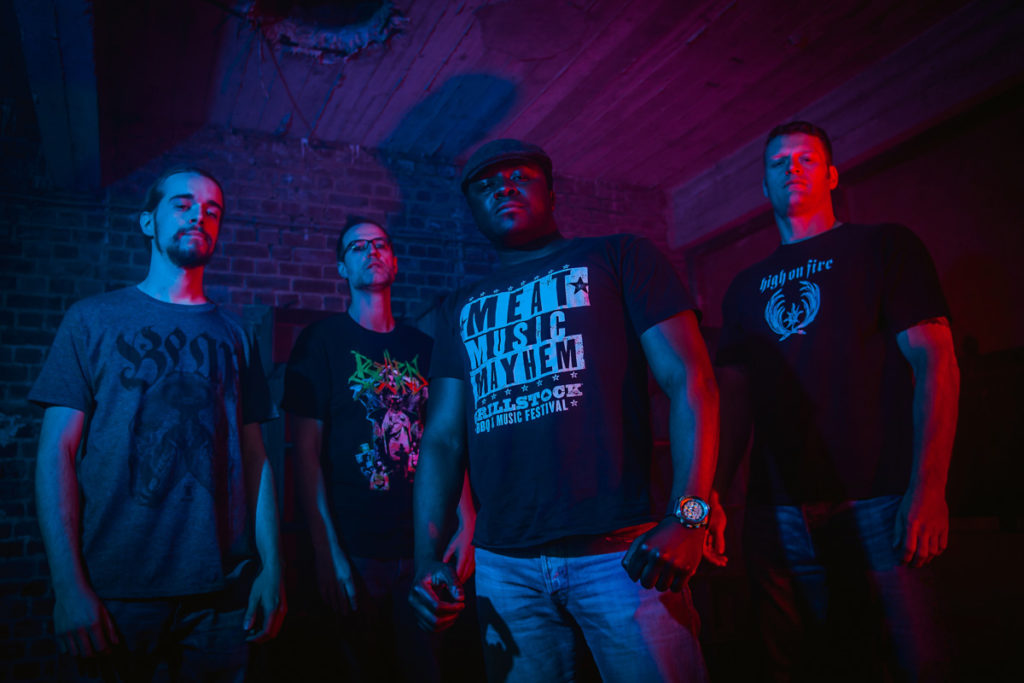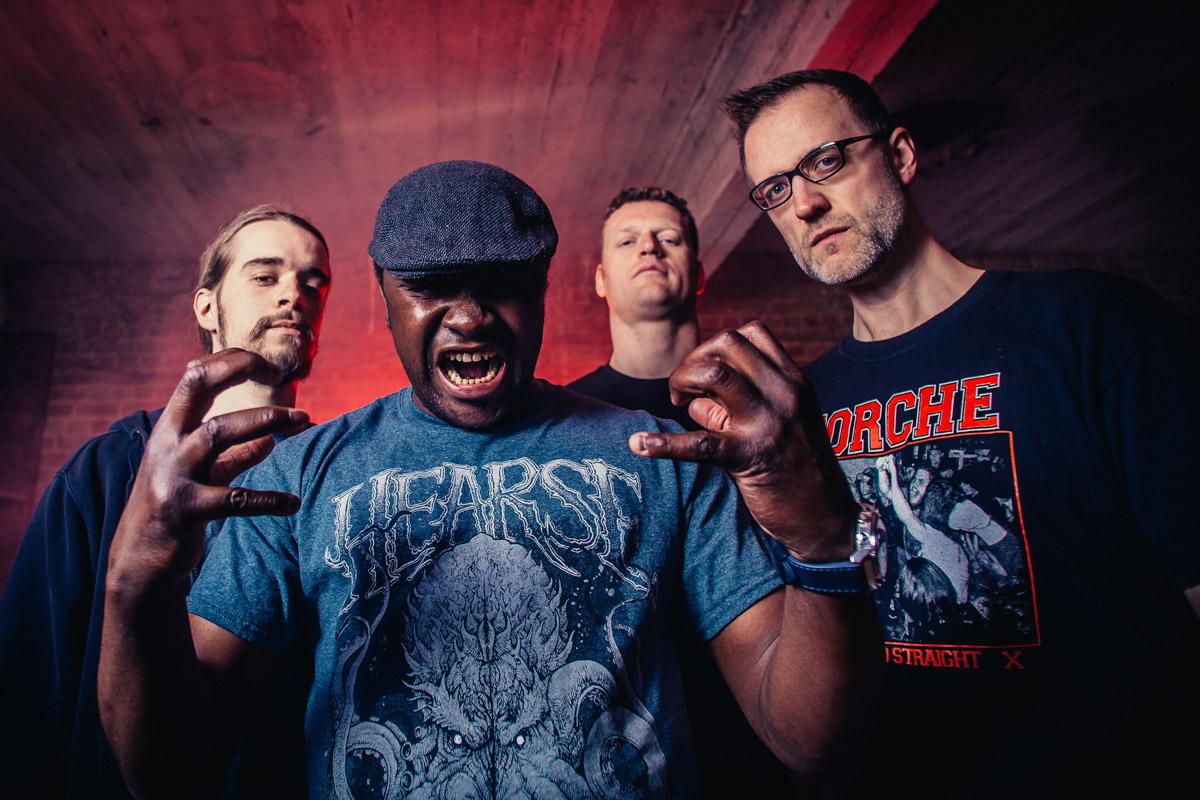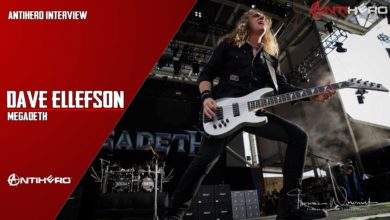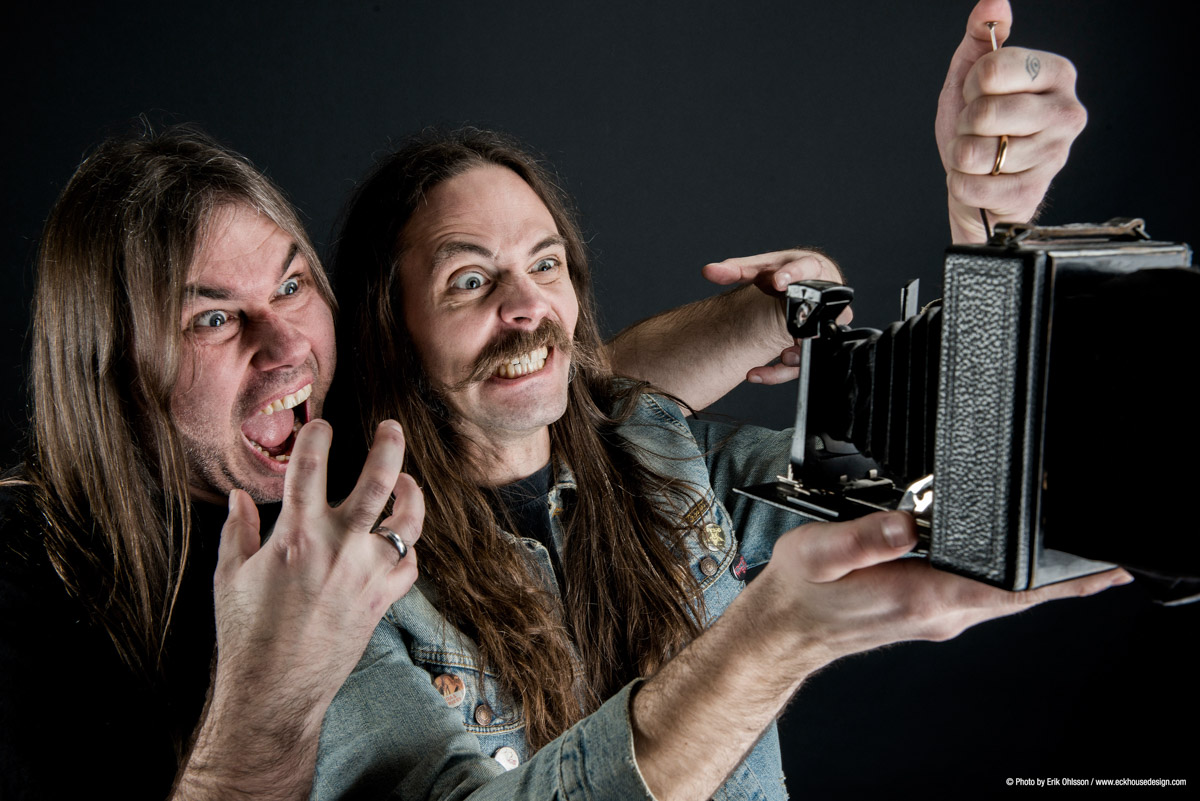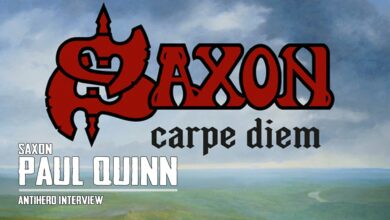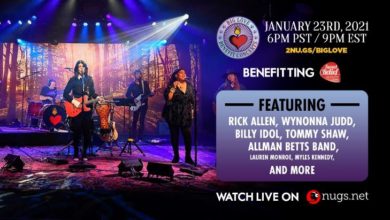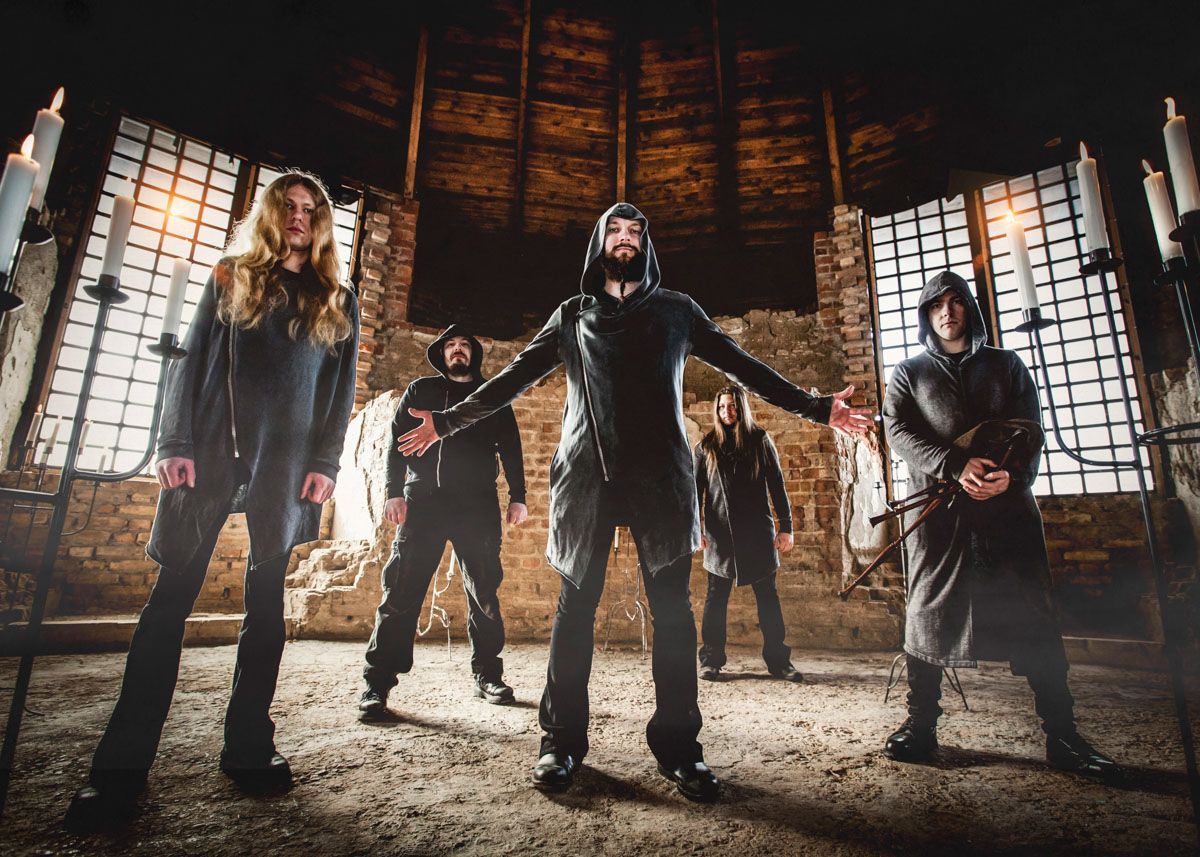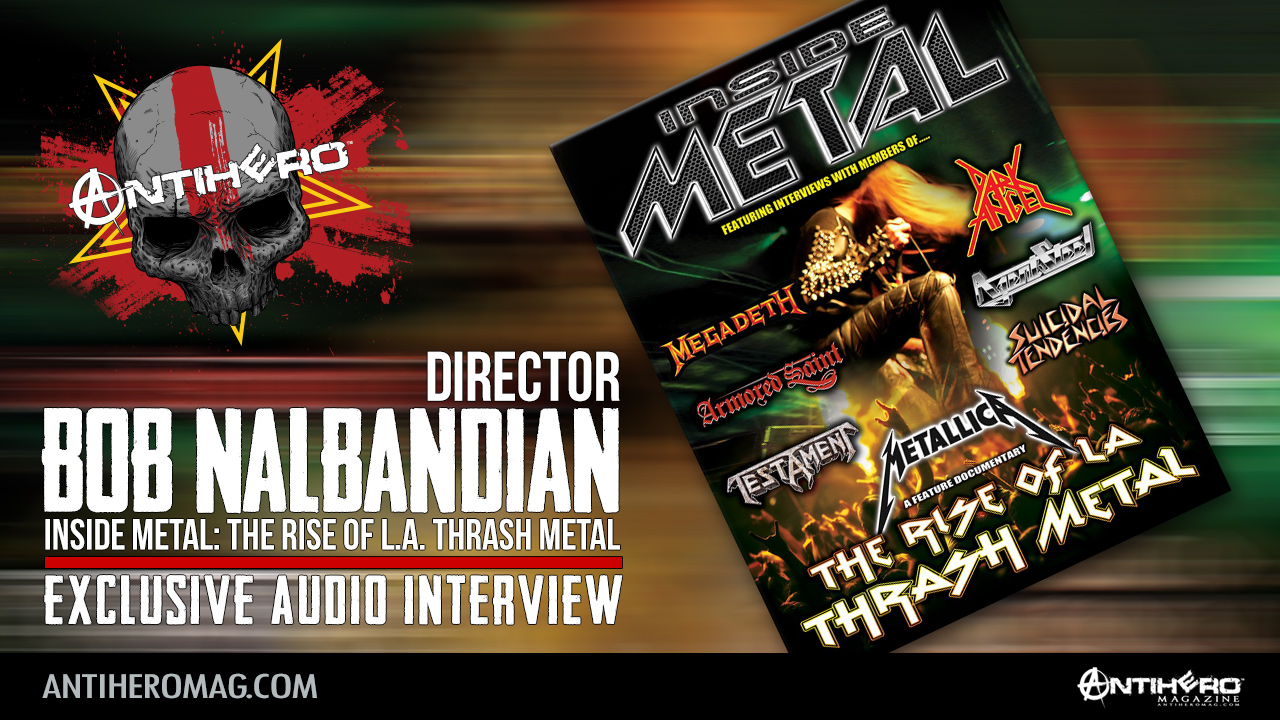Antihero Magazine recently had the opportunity to speak with Nicolas Malfeyt, bassist for Belgian death grind extremists LENG TCH’E about the history of the band and their latest release of Razorgrind.
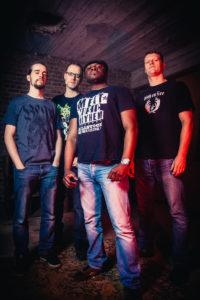
ANTIHERO: What is the proper pronunciation of “Leng Tch’e”? I saw on your Wikipedia page it said the name is derived from an alternate English spelling of “lingchi”.
Nicolas Malfeyt: We probably pronounce it wrong ourselves as well because it’s a Chinese word that we’ve just … It’s the English version but probably if you say it to a Chinese person, they wouldn’t know what we were talking about. I think I’ve asked the brother of my friend, he’s a Chinese language professor at university and I asked him once a long time ago how should I pronounce my own band name and it was something very Chinese-sounding, like “Ling choo.” Something like that.
ANTIHERO: Since we’re on that subject, can you tell me what is the definition of it?
Nicolas Malfeyt: It’s “Death by a Thousand Cuts“, which is also the name of our first album and it’s a Chinese torture ritual. You can read it on the Wikipedia. It’s a slow death by slicing, so they gave you some drugs and then they start slicing all of you, like a thousand little cuts, until you bleed out. That is something they used in ancient Imperial China, in Middle Ages. They had some pretty refined torture techniques.
ANTIHERO: That sounds bad… Can you tell me a little bit about how the band was formed?
Nicolas Malfeyt: Yeah, sure, it was formed 2001 by some members from Aborted, Anal Torture, some other local grind bands from the Ghent/Kortrijk area, and they decided to form a Grindcore band, a fun side project because it was originally Sven, the singer from Aborted. He was on drums because he felt like playing drums and then he got Isaac the singer from a local band from Ghent and then some guys from Anal Torture, just as a fun band and then they started putting out albums and suddenly people got interested and labels got interested and members dropped out and new members came and then I joined for the second album. Then Jan, who’s the guitar player and the main songwriter now, this past 12-13 years, he joined for the third album and then we got signed to Relapse.
ANTIHERO: Are you originally a guitar player turned bassist?
Nicolas Malfeyt: I am. I think I played maybe two gigs on the guitar, maybe three. They didn’t have a bass player at the time because the bass player at the time who played on the second album, he couldn’t stick around because he had two or three other bands and then Sven was like, “Hey, you want to play bass?” I was like, “Sure, I’ll give it a shot” and then I found out it’s more fun than playing guitar so that’s how I became a bass player.
ANTIHERO: Your guitar player, wasn’t he originally a bass player also?
Nicolas Malfeyt: Actually, Jan, yeah, that is true. It’s funny you say that because not many people know that. He played bass in Spleen. It’s an old power violence band from the region and he was originally a singer when he was 16. Then he started playing bass and then … No no, I’m wrong. He played guitar in Spleen but he played bass in, I think, the band with the original singer from Leng Tch’e. This is a very long time ago. This is before we met, but he was a bass player originally. He’d only been playing guitar for a short while when he joined Leng Tch’e but he became very proficient real fast. He joined in 2004, and 2005 was the ‘Process of Elimination album on Relapse and he wrote already half that album and then all the albums after he just wrote everything.
ANTIHERO: You’re on your third singer right now, right? How long has the current lineup been together?
Nicolas Malfeyt: Six years.
ANTIHERO: Would you say that this is the strongest lineup you’ve had since you’ve been in the band?
Nicolas Malfeyt: Oh, yeah. For sure. For sure. This is also the strongest album we’ve ever done. Musically it’s just head and shoulders above the rest. Songwriting-wise, production-wise, everything. It’s just miles ahead of everything. The other albums were good for what we did at the time, because we couldn’t have written this album back then be we weren’t ready for it, but now to play together for many years and especially it’s a songwriting core of Jan and Olivier, the drummer. Guitar player and the drummer, the two of them, they write all the songs. They’ve been jamming together for a few years now and they really gelled as a creative unit. That really shines through on the album, I think. They’ve really found each other. They’re just the perfect mix of skills and songwriting ability. It’s by far the strongest lineup.
ANTIHERO: You’re talking about the new album that’s coming out in late August, right?
Nicolas Malfeyt: True. Yep. 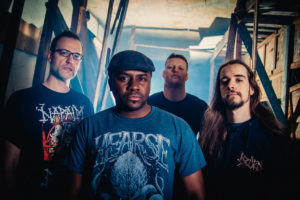
ANTIHERO: It’s your best album to date. Can you tell me, what does Serge bring to the band that the other singers haven’t had?
Nicolas Malfeyt: The other singers were fine for what we did at the time and Isaac sounds great on the first two albums, but when we recorded the first one for Relapse it just … The music is always evolving. We’re not a band that puts out the same album repeatedly. All our albums, they’ve progressed. Every album is different. By the third album it was becoming clear that the singer’s style didn’t fit the band anymore so then we got Boris from Suppository and ‘Last Days of Humanity’. He did it in two days and it sounded perfect. It was a way better fit for us at that time for that album, and then he did the one after, Marasmus but then he got quit so we got Serge and now Serge sounds great on this album and the previous one. I couldn’t imagine Boris or previous singers singing on these last two albums because it wouldn’t work. Actually, every singer was good for what we did at that time but what Serge has done on the previous album and especially this album, it’s just amazing the power and the energy that he brings both on the album and life, you’ve probably never seen us live but the energy he brings onstage, it’s just an explosion of primal aggression. He’s a fucking animal onstage.
ANTIHERO: I’ve watched a bunch of YouTube live clips from when you played Obscene Extreme Festival with Serge and I’m very impressed. The guy can really belt it out.
Nicolas Malfeyt: Savage. He’s a savage and he doesn’t just stand there.
ANTIHERO: He sounds so pissed off. He just sounds like it’s a whole “fuck the world” pissed off, which I love. His first album he recorded on was Hypomanic? That was in 2010 and you’re coming out with a new album in 2017. Why the seven-year gap?
Nicolas Malfeyt: Yeah, that’s what everybody asks. We had some stuff going on in the band and on a personal level. We’ve had some lineup issues because the drummer that played on Hypomanic, he quit right before the album came out. Actually, the year before he already told us he was going to quit so the album came out in 2010 but we already knew since 2009 that Tony was going to quit the band and we spent the next two years trying to find a replacement but there’s not many good technical death metal or grind core drummers in Belgium. We’re a very small country so there’s a small talent pool and we had to hire drummers from other countries. Get some dude from some Polish guy come over from England, fucking driving 12 hours to go play a show with us. For about two years it was rough. That’s also the reason why we didn’t really tour for ‘Hypomanic until two years after it was released because it took us two years to find a new permanent drummer which was Olivier who was 18 years old at the time but gave it a shot and he got really good really quick. That was already 2012 by the time we got a new stable lineup and then we did some tours and I think they started writing 2012, 2013. Songwriting was finished, started recording, and then Serge had some personal issues. His marriage fell apart and he had a custody battle over his kid and all kinds of personal problems that further delayed the recording of the vocals but it was finally finished last summer. Then it took another year for it to get released because we had to renegotiate with the record label because it’d been so long and then they had a really long release schedule planned because Season of Mist is a big label. They put out a lot of albums so they can’t just receive your master and go like, “Oh yeah, sure we’ll put it out next month.” They had all these releases planned. I think they received the master tape in January and they couldn’t release it before August so before you knew it was another year. By the time the album would come out … It was finished in October. It was recorded, mixed in September, mastered in October. Master delivered December or January and then we wait another seven, eight months. It’s been a long wait. You must be very patient but we’re glad it is finally coming out and we’re super excited with the way it sounds, the way it looks, the artwork. Everything is just perfect. 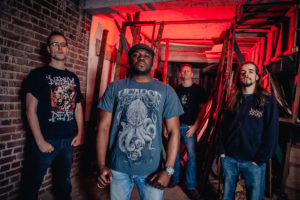
ANTIHERO: The few songs that I’ve heard, I like a lot. That’s what I like about you guys. Being a grind core band, you’re still quite melodic. It’s not just blast beats. You have structure and everything, which a lot of grind core bands just don’t have.
Nicolas Malfeyt: We figured there’s enough bands already that sound like that. Why sound like another one? There is about hundreds of thousands of bands that try and sound like Nasum or Phobia or Napalm Death we’ve always tried to have our own sound which I really tell them, “Get some more influences in there and still have it sound like Leng Tch’e. Have it sound brutal but get some different influences in there.” Just have a unique sound. Something a lot of grind core bands don’t like is a nice production. A nice, crystal clear, heavy production. It has to sound underground and muddy, but we figure if you put so much time and effort into the songwriting and you put so much detail in the riffs and drum sectors and the vocal lines, five, six different vocal lines and the bass, why make it sound like shit? We want to make sure that they hear everything because we’ve worked years and years to craft these songs to the best of our ability. We also want to make it sound as good as we can so everybody can hear it.
ANTIHERO: Can you tell me how would you describe your sound? You said it’s Razorgrind?
Nicolas Malfeyt: Yeah, that’s something that we coined as more of a joke. On the first album, we thought it sounded catchy, like some kind of catchphrase. We were just joking around and suddenly people started labeling us with that because people like catchphrases or terms. People like to pigeonhole bands, you know? All of a sudden, we coined this new genre by accident. We just rolled with it. We figured, “Hey, sure, why not? Sounds catchy. “We’ll just roll with it.” We’ve always been an open-minded band because it started as a fun project. It was never meant to be serious so already on the very first album, it was much more basic back then because we didn’t have the skills that we have now, but we just put silly stoner rock riffs in there and hardcore breakdowns and keyboards, organs, just stupid shit. Everything that we could fit in there, and then from then on, that mentality, it just evolved and just becoming more serious musicians. Now we still have that open mind but the music has become a lot more serious, a lot more technical without sounding technical. I always try to say this in interviews. It’s the skill of making technical music that doesn’t sound technical. It’s complex, multilayered, and very complex structure but it’s easy to the listener’s ear. It doesn’t have to, “Oh, wow, what’s all this? All these riffs going in every direction.” At first listen, it sounds just catchy and straightforward but if you listen to it more you realize it’s quite complex. That’s what we try to aim and still make it sound brutal and catchy and energetic and groovy but not too simple and not too …
How should I say? Too obvious. Like riff A, riff B four times, and then riff A again and then it’s finished. No, no. We try and put some little twists and turns in there and influences that people wouldn’t expect but without trying to sound like a copy/paste band. I feel like these bands are trying to be technical or progressive but they’re just copy/paste. It’s just 28 different riffs and they don’t make sense. They paste one after another and then it’s just a big collection of riffs which is probably very hard to play and to record, whatever, but it doesn’t sound like a song. There’s no flow. It doesn’t flow and that’s very important to us. Get all these influences in there and make it very musically interested but still make sure the song flows and the song is catchy and memorable. 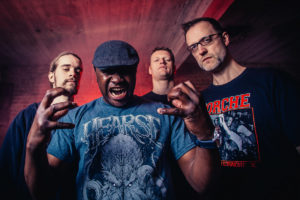
ANTIHERO: Can you describe the songwriting process?
Nicolas Malfeyt: As I mentioned before it’s Jan and Olivier so the guitar player and drummer. They write all the music. Jan has this big book of riffs that he is always writing down riffs in a little riff bible. When it’s time to write the album he’ll just hook up with Olli and they spend a few weeks together crafting songs. They have a nice collaboration going on between the two of them. They can really sense what … Olli sense what he should play on Jan’s … Jan doesn’t tell him “Try this” or “Try that.” They have this creative connection and they can just bust out songs. They’ll sound great.
When they’re finished then Serge will do his thing. Just come up with lyrics and vocalize in studio. Serge records a bit different than most singers that I’ve worked with. His vocal lines aren’t fixed beforehand. He just goes into a studio and he just keeps trying stuff. He just lets the song flow and he just goes with the feeling of that moment. It might be totally different than what he planned before. He doesn’t have fixed lyrics before … I’m always busting his ass like, “Give me the lyrics because I got to check the lyrics for the artwork and blah, blah, blah” and he’s like, “OH, but …” He will change it while he’s recording because you listen to the song and if you’re like, “Yeah this doesn’t flow right. I like to change something here.” He has general ideas, like rough draft, but he’s not one of those singers that just goes in studio and three days later he just mucks them out. He has a different way of recording. We just leave him. We’re not even present. It’s just him and the engineer. We leave him alone and a couple weeks later he comes out and it sounds great. The amount of different vocal lines and different voices and the vocal effects that he does on this album is just amazing. Once you can hear the full album you will hear it. It’s like we have five different singers.
ANTIHERO: So, he basically improvises? He doesn’t write out his lyrics in advance?
Nicolas Malfeyt: He does but they’re not 100% fixed. He will change them around as the song flows that day. He just listens to the song over and over and over while he’s recording and he might change it as he goes.
ANTIHERO: Basically, the band will go in the studio and you’ll record your bass part, the guitarist will do his guitar, drums, so and so. You guys will be done and Serge will come and do his part which seems like it’s lengthy…
Nicolas Malfeyt: Yes. It takes a long time and we’re very fortunate that the engineer is a good friend of ours that he lets us spend so much time in the studio and it’s a very drawn-out process, which is also why it took so long. It’s not just the issues that we’ve had it’s just also the way that we record and especially the way Serge records. It can be drawn-out but that’s just … He’ll do a couple of hours and then he’ll come back two weeks later and do many … He’ll let it rest and come back another two weeks and do a couple of more hours. He doesn’t knock them out eight hours in a row. He’ll just come sporadically over a few weeks or months so he can let it rest and have it … Like a piece of bread that rises in the oven, you know?
ANTIHERO: This album is on Seasons of Mist? Is that correct? Whereas the prior couple albums were on Relapse, right?
Nicolas Malfeyt: No, the one before was also Season of Mist and the two before that were on Relapse.
ANTIHERO: What was the decision for changing labels?
Nicolas Malfeyt: From Relapse to Season of Mist?
ANTIHERO: Yeah.
Nicolas Malfeyt: The contract was just up and they didn’t show much incentive to re-sign us so we just started looking around and actually the head guy then at Relapse, he actually advised us to go with Season of Mist. He’s like, “Yeah we won’t be re-signing you but you should try Season of Mist. That’s a good label for you guys,” so we did. It’s better for us because we’re in Belgium. Season of Mist is in France. Neighboring countries. Part of their staff is Belgian and Dutch so it’s easier to communicate a lot like an American label and the funny part is that the head guy at Relapse back then is now the head of Season of Mist USA.
ANTIHERO: Oh, so they know you guys well.
Nicolas Malfeyt: We’re like, “Hey, we meet again.” Season of Mist label, they’re doing a great job promo-wise. They communicate very well, swiftly, to answer all our questions. They’re very nice guys to work with.
ANTIHERO: Nice. Can you tell me what is your sound derived from?
Nicolas Malfeyt: Like I said, in the beginning, I guess it started like a mix of grind core and some more stoner and doom, like Blood Duster did as well? That was an influence in the beginning and Nasum. Regurgitate. Napalm Death, of course. Then classic hardcore bands like Pro-Pain, that hardcore groove, you almost try to fit it in there as well. Then as the band progressed it just got more … I guess right now you could say it’s a mix of, if you want me to throw some names at you, I’d say Napalm Death, Burnt by the Sun, old Mastodon, Neurosis, Morbid Angel, just everything from hardcore punk to death metal to grind core. If it sounds great in the song and it sounds like Leng Tch’e then we will use it.
ANTIHERO: I guess that also goes the same for your musical influences, would be those bands too.
Nicolas Malfeyt: For a large part, yeah. We all have our own influences and not everything that every band member listens to will end up in the band but we all love all the styles that are implemented in this band. Me and Jan we’re the same age and we grew up on many of the same bands. We’ve been through the same phases from being in the underground scene here in Belgium. We have, for large part, the same influences and musical interests.
ANTIHERO: When it comes to writing your set list do you keep the same set list for the whole tour or does it change day by day?
Nicolas Malfeyt: No, it’s the same set list the whole tour.
ANTIHERO: Do you have any certain songs that every year you play a certain song? A crowd favorite or so, or is it just change all the time? Every year?
Nicolas Malfeyt: We’ve had more or less the same set list these past couple of years with a few … We’ll change around the encores depending on if the crowd asks for it or not but since we didn’t have a new album the set list stayed the same but now that we have a new album coming out, we changed the whole set list. It’s now 80% new songs, because you’ve gotten so sick of playing these old songs repeatedly. The new album is 14 songs and we’re playing 10 of them in our set list.
Now it’s … We played a gig in France last month and we played a new set list and now we’re still maybe fine tuning it here and there. We made some changes, but once that is set that will probably be the set list for the next year or more. We might change a little bit, like I said, the encores sometimes change but once a set list is set and it feels right, we’ll play it for a while.
ANTIHERO: What subjects inspire it Serge’s lyrical songwriting?
Nicolas Malfeyt: There’s actually a common theme through at least half his lyrics. If you read between the lines you can discover the theme, which is one of the reasons why the album got delayed. It’s his personal issues, relationship issues that messed with him the past couple of years. At least half the lyrics are dealing with just the theme or the issue of losing control of everything around you and just seeing your life … Something that you were into a couple years ago, just everything came crashing down on him and he went into this foul, destructive, negative spiral. He just climbed back out of it and got his life back on track and that whole story, at least half the songs are about this, and then the other half, he just put everything in there.
There’s some social commentary, there’s the usual anti-organized religion. The last song is a six-minute epic. It’s something about universe. I’m still not sure what he’s singing about. Actually, the last album also had a nine minute … We do this on every album almost. We end the album a longer song that’s like a long build up or a long outro, just to change it up. Not to have 15 grind core songs after another. This long as well is a longer, I think six minutes, a very long intro and then builds up and explodes and then a very long outro. It’s a really fucking cool song. Lyrically, it’s way out there. I think he ate some nice weed cookies and just started improvising. It’s about the universe and the forces that create and all this intergalactic spiritual stuff. That’s one song on the album.
ANTIHERO: I imagine that probably the best thing for when you’re going through a divorce or something is to be in a band. Being a singer. Then you can just take all your anger out with your lyrics and stuff. It probably evokes your songwriting and stuff, your lyrical songwriting because you’re so pissed off and you’re so angry you can just express it in your music.
Nicolas Malfeyt: I think it helped a great deal just dealing with the aftermath of his divorce and you can hear it on the album. He’s fucking pissed off in these songs. Like I said, the aggression and the energy on this album, it’s really something. I get fired up. I’ve heard the album numerous times, I still get fired up. I told Jan, “I can’t listen to the new album when I’m driving for too long because I’ll just cause a fucking accident or something.” It gets me pumped up so bad I start playing air guitar, start headbanging and doing my … I go, “Oh, shit.” I was almost crashed into somebody. There’s a lot of energy on this album.
ANTIHERO: Can you tell me what is your opinion of online streaming sites such as Spotify and Pandora?
Nicolas Malfeyt: I’m on Deezer myself. I think it’s awesome. It’s very convenient. I’ve been paying the subscription and for $10 a month I get unlimited streaming. I can sync it to my phone. I don’t even buy records anymore because the only time when I listen to records is when I’m driving. I don’t have to haul around a whole bag of CDs in my car. I just put them on my phone and sync. It has Bluetooth. Sync it to my car stereo. That’s the only way I’ve been listening to music for these past couple of years because I have a job and a wife and kids. I don’t have time to listen to metal at home, but the half an hour, that hour a day that I’m in the car, that’s when I’m blasting metal. For me, it’s very convenient. Now, financially, obviously they’re still long way to go. I don’t know if bands will ever be financially compensated the way they were up until the ’90s. I guess bands were spoiled. We’ve never been at that level. We came after, early 2000s and then we’ve never been that big enough.
By the time we got some recognition, we got signed to bigger labels, already destroyed the entire industry. For me personally it’s convenient. I think it’s purely technological, not economical or even morally. Just purely technological, I think it’s awesome. Now I can easily imagine that bands that were around in the ’80s and ’90s that they’re fucking pissed off because they’re used to getting these big checks and they’re seeing their album sales go from a million to 200,000 to a 100,000. I’m sure it sucks but that’s the way the business has evolved and bands must tour more now, sell more merch. We’ll see.
Technology is ever-changing. You cannot compare technology from now to even a year or two years ago, so who knows where it will go? Maybe they’ll find a way to monetize YouTube even more so more money flows back to labels and bands, or there will be more options for bands to sell directly like you have now with Bandcamp and stuff like that. I guess we’re in an in-between … I think it’s getting better already. I think it was really bad up until five or 10 years ago. Everybody was downloading for free-
I think it’s gotten better now. I don’t see that many illegal or free downloads anymore as I used to. Maybe it’s because I’m older. I’m not in touch with that community anymore or maybe it’s because I’m just on paying streaming services so I don’t even look for downloads anymore. Maybe I’m wrong, but for me, that’s just what it feels like to me. I’m seeing more of these legal options like I said, Bandcamp and Spotify, Deezer. Now YouTube is also being monetized.
The internet is heading in that direction but it’s a difficult balance between the total freedom and anarchy of the internet, what the internet was based on. It’s evolving towards more structured or organized entity and it’s going to cause problems because there’s millions of people that are used to a attitude of the internet. I think going to try to structure it more or control it from above, but I don’t know what’s going to happen with it. I think there’s a large underground community that’s going to revolt against more structure or legalizing of the internet, so we’ll have to see.
ANTIHERO: I think the three greatest technological inventions were Spotify, YouTube, and Sirius Radio. Just because prior to Spotify, I was like you. I was out buying CDs. I had thousands of CDs but of course when you have thousands of CDs, you need room to store them at. Great thing about Spotify and stuff is it takes up no room. You could have 500 albums and it takes up no room and you can bring it places. You can listen to it in your car. You can stream it in your car. On your phone. Everywhere. I love Spotify because I find so many new bands. That’s how I find … I go on there each week they have a section on there, Discover. I go to Discover and I check out bands, like oh my god. I would have never ever normally have found half these bands before.
Nicolas Malfeyt: Before you had to go to record store and then see new albums in the CD racks or ask the guy from the record store, “Hey, is there anything new this week?” Then he’d say, “Yeah.” The guy behind the counter was your Spotify. Like, he’s, “Hey, ah, hey, how’s it going, Nicolas? I have this new death metal record for you. Check it out.” That whole thing, it still exists, but it’s gotten a lot, lot, lot smaller. There’s something to be said for that as well, the human connection. The human interaction, socially. I think we’ve lost a lot of that social interaction now that we do everything … We think we’re connected but we’re not. It’s an illusion. You think you’re being socially active because all your apps are connected to your buddies but in reality, you’re just sitting on your ass on the couch and staring at your phone. There’s that whole sociological or even anthropological discussion that you can have regarding technology and all that. Then there’s the financial aspect because I think Spotify is still not making any money, or barely. That business model’s been around for many years but it’s still not really working so who knows where that is going? Maybe one day the investors will get sick of all these internet firms that are not really making any … I think even Amazon is still not making any money and they are the biggest supermarket in the whole world and they’re not making any money. How long is that viable? It just feels like a gigantic bubble and people keep supporting it but one day they are going to have to start making money.
ANTIHERO: I go on YouTube, I’ll punch in Leng Tch’e and it’ll say, “If you like this band, check out these bands” and that’s how I found … check out these and I’ll go on, I punch in grindcore, I’ll know you guys and then I’ll check out some other bands. It’s a great melting spot. You go in there … I love it. I’m all for it. Blah, blah, blah.
Nicolas Malfeyt: There’s also those algorithms that say, “If you like X you will like Y.” There’s algorithms behind it. It’s like how Facebook defines your newsfeed, right? You’re already depends on these algorithms and if your band doesn’t fit an algorithm then you’re fucked, but also part of these algorithms is being manipulated because you have these paid ads so you never know why am I being directed. Am I being sent in this direction because of an algorithm or because of my taste or is there a marketing campaign behind this? That’s how the internet makes money. They know all the bands you like and they send you in a certain direction so you buy shit but it’s not always organic, is what I’m trying to say. It’s not always based on “Oh this person likes these bands? Oh, he will like this.” There’s always money behind it so you might be manipulated into a certain direction that you might not be if it were just organic but that’s just the nature of the beast, I guess.
ANTIHERO: I cannot recall if we talked about where that was recorded and who produced it and mixed it?
Nicolas Malfeyt: Our friend Lander’s place. Studio’s called Hearse Studio and then it was mixed by Kristian “Kohle” Kohlmannslehner … This place it’s called Kohlekeller Studios you can find it on our website. He did us, he mixed Aborted, Benighted from France, so he does quite a lot of brutal stuff. Then we had it mastered at Alan Douches’ studio in New York because we really love his mastering. He always adds something extra. Just a little clarity or this little … Just the fact that it’s a different set of ears can make a good album sound great. Not that he’s so much better at mastering. He might be but it’s just a fresh set of ears instead of the guy that has been mixing your album for the past couple of years. Then we just give it to him and he has a whole fresh perspective of his own. He’s like, “Maybe it should sound more like this” and suddenly, oh shit, it just changes the whole dynamic of the album.
ANTIHERO: When it comes to touring, are there any certain countries that you enjoy playing at more than others?
Nicolas Malfeyt: Mostly we play around western Europe and so that’s Belgium, Holland, Germany, France, UK. I’d say that’s our main market. Out of those countries I’d say Germany. Used to play in Germany a lot but we started playing France more the last couple years, being signed to a French label and our singer being French-speaking. His first language is French while the rest of the band, I don’t know if you know but Belgium, we have two, three, languages in Belgium.
The north of the country speaks Dutch and the south of the country speaks French. It’s like Quebec in Canada. We have one province but in Belgium it’s 50/50 in Dutch and French. He’s from the south part so his first language is French and then Dutch and English. For the other 3/4ths of the band it’s Dutch first, and then French and/or English but the fact that his maternal language is French works very well in France because French people love everything that’s French.
If you speak a few words French, they will fucking love you down in France. They’re very chauvinistic so with that being also on a French label, we play some big festivals in France which went over well and ever since then we’ve played in France more and the French crowds are just lovely. They’re just amazing. One of the best crowds in Europe. They’re very welcoming. They’re warm, they’re energetic, they love brutal music.
Germany the same and UK as well. I love playing UK. Bands love to complain about UK but I always have a good time in UK and we’re going back there in November for a short tour. I can’t wait.
ANTIHERO: You brought up about France. Lately I’ve found a lot of great bands out of France. Lot of great bands that unfortunately don’t get a lot of recognition out in the U.S. except for Gojira. Gojira’s huge everywhere. They’re one of the biggest metal bands out but I did an interview recently with a French band L’Esprit du Clan and the up and coming band Psykup and IGORRR.
Nicolas Malfeyt: Yeah, yeah, I’ve heard of IGORRR. I’ve seen some stuff pass by about this band. It’s out there, huh?
ANTIHERO: It’s very out there. Very out there.
Nicolas Malfeyt: They had a big boom these last five or 10 years in just progressive, forward-thinking metal in France which you would never have expected 10, 20 years ago because it was always Sweden, Norway. In the ’80s it was England. All the big bands came from England. In the ’90s it was all Scandinavia, everything from Sweden and Norway and Finland. Just couldn’t go wrong. If you were a Swedish band, everybody loved you. Now suddenly, it’s France for some reason. They’re setting the tone. I think like you said, I think Gojira changes a lot because since they’ve gotten so huge, and well-deservedly so because they’re fucking amazing, but I think a lot of other French bands saw this success and the way Gojira is just a no-compromise band. They have their own creative vision and there’s nothing … They’re obviously commercially successful but they’re not commercial, you know what I mean? It’s not commercial music but they’ve just gotten so successful because they’re just so good at what they do and I think that lit a fire in a lot of small bands, like, “Hey they can do it, maybe we just …” Instead of trying to sound like a Swedish band or an American band, like a lot of European bands were doing for a long time, they just figure, “Hey, we’ll just create our own sound and just be ourselves.” Gojira has shown that you can be successful by doing that.
ANTIHERO: I know it’s been a while, but when was the last time you guys played in the U.S.?
Nicolas Malfeyt: In 2004 and 2005 we played Maryland Deathfest. The first couple editions but it’s already 12 years ago. Then we played some other shows along the East Coast. Atlanta, Boston, New York, Philly. I think first time was us and shit, who else was it? We did some shows with Impaled from California, right? I’m trying to remember who we played with in 2004, was it … Ah, shit, I forget. I think it was Neuraxis, maybe? I would have to look it up.
ANTIHERO: Malignancy and Aborted?
Nicolas Malfeyt: Oh, you’re right, Malignancy, yeah. Of course. Mike, of course. Malignancy. How could I forget? I’m getting old, man, sorry. Malignancy, true. That was a fun time. Ever since then it hasn’t really made any sense to go back yet because it’s very, financially it’s almost nonviable for a band like us. We’d have to tour for a whole month straight because you got to pay the flights and customs. The work permits are quite expensive. They used to be a lot more easygoing, you could just come as a tourist with a guitar and they wouldn’t really give a shit, but since 9/11 and now especially since-
It’s gotten a lot stricter and they will actually Google your name and if they find out that you’re in a band, they will just send you back the fuck home and you can forget about your tour if you don’t have a valid work permit which are hard to get and cost money. For bands that tour there two or three months out of the year it makes sense, but if not, you’ll just be losing a whole lot of money. It just doesn’t make sense. We would love to go back because the times that we played there and especially Maryland Deathfest, it was fucking amazing.
ANTIHERO: Oh, yeah. I think my bucket list, before I die, before I leave this world is to make it out to Europe for a big festival because so many bands … Most of the bands that I like are European and they never step foot on U.S. soil and it’s such a shame.
Nicolas Malfeyt: Oh, Hellfest. You got to go to Hellfest in France, man. I played it. It’s a heavy metal circus. It’s amazing. It’s the coolest festival we’ve ever played. The whole thing is a giant post-apocalyptic gothic metal circus and then the bands are amazing as well on top of that but just the whole atmosphere. It’s like, “Yes.” It’s a whole fantasy village. It’s crazy. The way they’ve dressed up, it’s like metal Disneyland.
ANTIHERO: I’ve seen the lineup the last couple years and it’s just like who’s who of metal. Everybody’s there. Because there’s a lot of those smaller, underground bands.
Nicolas Malfeyt: That’s what Hellfest does really well because a lot of these festivals will only book the big names but Hellfest always does a mix. They’ll book the same headliners, which you’ll see the same headliners on all the summer festivals because they just go in route but then they’ll give smaller bands a chance as well so you get. There’s always a certain percentage of underground bands on the Hellfest. That’s what makes it cool. We played there two years ago on one of the big marquee stages. It was fucking awesome. So many people there and they just go ape shit. Like I said, French crowds, they just go ape shit. One of these festival crowds I just stand there and they don’t really care who’s playing because they’re there anyway, you know? That kind of crowd? That’s not Hellfest. They will go ape shit for every band.
On top of that, financial conditions are worse than in Europe so we would actually be getting paid less and then have to pay extra on top for the visa and the flight so it just doesn’t make any sense. We did it when we were young because we just didn’t give a shit if we lost money or not but now we’re older and you just don’t see the point anymore.
ANTIHERO: I understand. You’re older, you have families, you have kids, you have jobs.
Nicolas Malfeyt: You got to find a balance.
ANTIHERO: Thank you, is there anything else you would like to add?
Nicolas Malfeyt: The album comes out August 25th. Everybody go and check it out. We’re very happy with it. If you can get a physical copy because it looks awesome, especially the vinyl. The vinyl is a gate fold layout with colored … They have limited edition … All the vinyls are a double gate fold sleeve but there’s limited run of blood red and I think some transparent white vinyl. It looks amazing. People that are into collecting records and nice artwork, even though we were singing the praise of digital streaming before. It looks nice.
ANTIHERO: I understand. There’s people out there that they want the physical copy. They want to have the pictures and the lyrics and stuff. I love that. That’s what I loved about it, but you run out of space but I know there’ll be the people out there that’ll buy the vinyl. People will buy the CD because they want to have the physical copy in their hand. The pictures and the lyrics and the whatnot.
Nicolas Malfeyt: Good and for those kinds of people we’ve put a lot of effort into the artwork. We didn’t just get any random, generic cover art and keep it cheap. We put a lot of time and money into this artwork because we know there’s a contingent of fans that really love the physical copy. It might not be for everybody but you got to cater to an audience. We know there’s people out there that love that. There’s a lot of time, effort, and money being spent on the artwork but when you see it you will see why. 